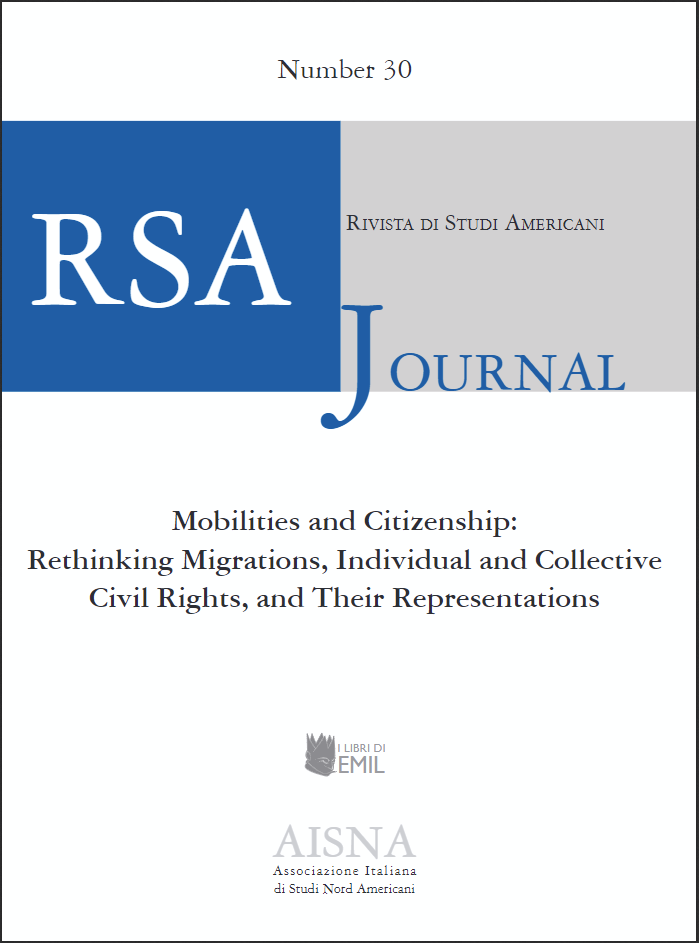Post-9/11 Rhetoric and The Split of Safety in Amy Waldman’s “The Submission”
DOI:
https://doi.org/10.13135/1592-4467/8512Keywords:
citizenship, civil rights, post-9/11Abstract
The article investigates the theme of citizenship in relation to individual and collective civil rights in post-9/11 US, by focusing on Amy Waldman’s The Submission (2011), a novel that speculates on a fictional controversy, ignited by the accidental selection of a Muslim American architect in the competition for the design of the 9/11 Memorial. Within this framework, the narrative represents the discrimination of Muslimand Arab Americans as a minority group singled out by assumptions of collective responsibility for the attacks on the World Trade Center and it reflects on the notion of safety and its implications. Waldman addresses these issues by adopting a multi-perspective narrative that allows for the depiction of differing understandings of safety – perspectives that the author seems to place on a continuum. On one end lies a slice of the American population that resorts to national security rhetoric in order to prevent a Muslim architect from memorializing 9/11, because his religious background is reputed as a threat in itself. On the opposite end lies a Pakistani immigrant without documents who lost her husband in the 9/11 attacks (himself an illegal worker at the WTC), a woman for whom this climate of mounting racial friction results in the total negation of her safety when she is killed in an anti-Muslim riot. This tragic event can be interpreted as the apex of a trajectory, developed over the whole novel, that interrogates the dynamics of a comprehension of safety and of national identity that opposes “Americans” to “immigrants,” and eventually leads to a split in the notion of “safe” into its two antithetic meanings of “not likely to be harmed” and “not likely to cause or lead to harm.”
Downloads
Published
Issue
Section
License
RSAJournal will apply a CC BY 4.0 license to all its contributions starting with issue 37 (2026). Previous issues are licensed under a CC BY-NC-ND licence.





